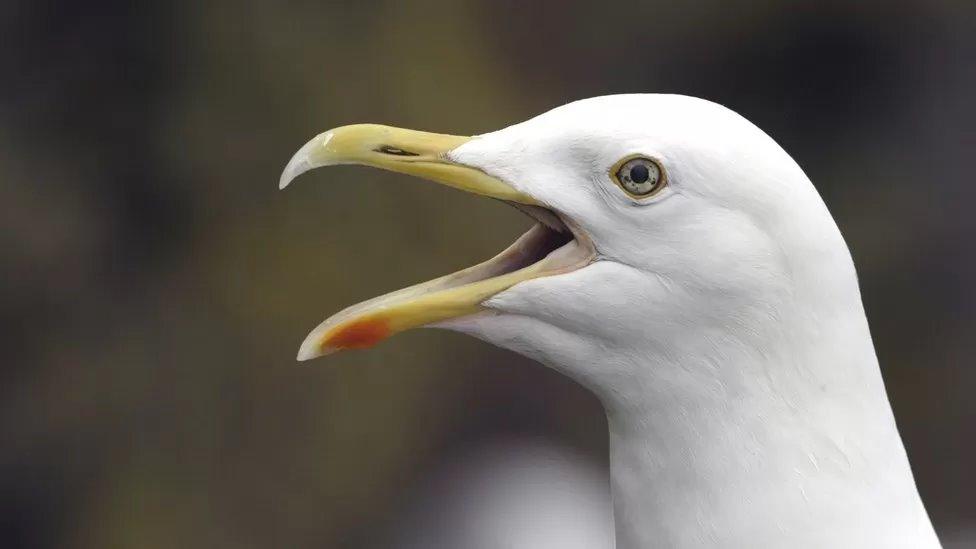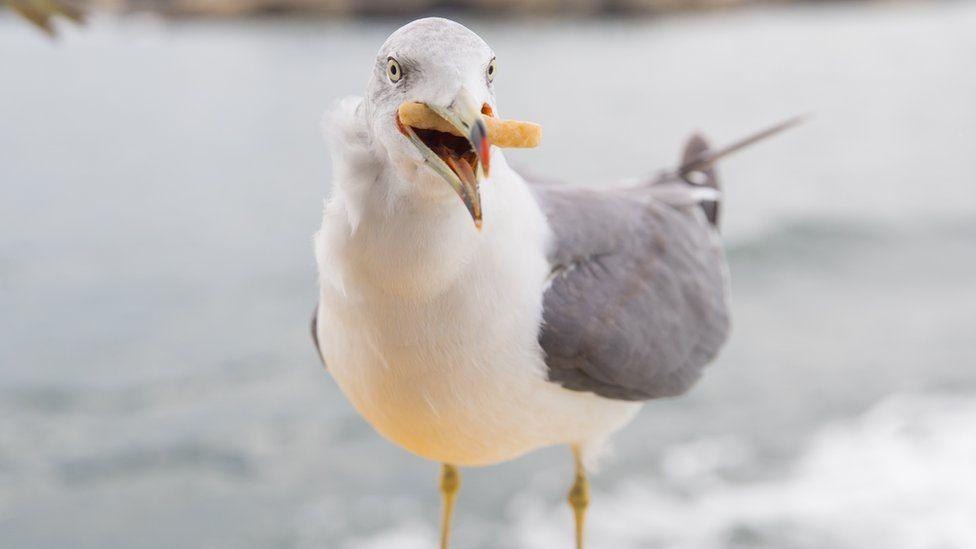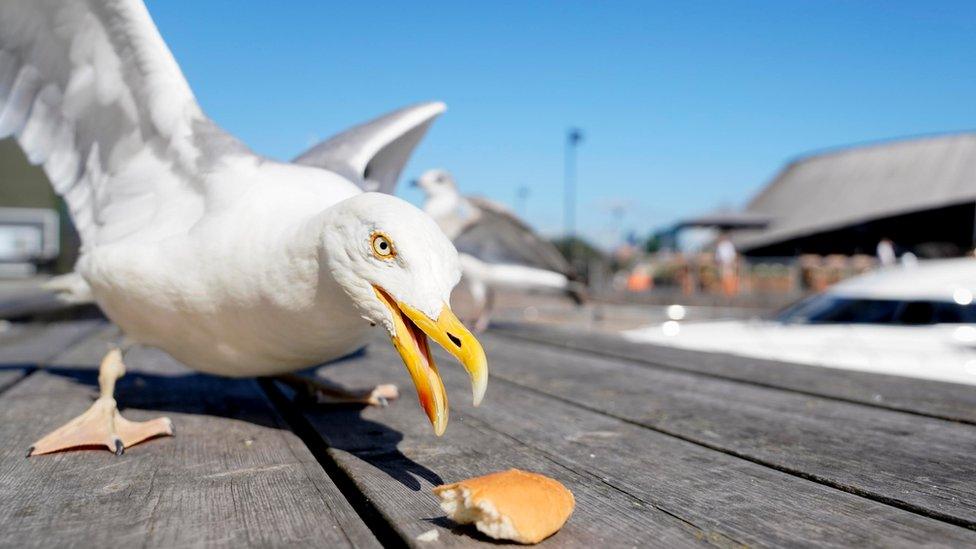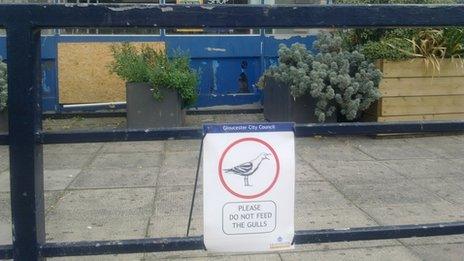Risk of bird flu outbreak as gull population soars
- Published

The gulls' breeding season begins in May
There are fears a rise in Gloucester's gull population could trigger a bird flu outbreak.
Gloucester City Council leader Richard Cook said their numbers would grow "inexorably" in spring as they returned after spending the winter abroad.
They will become "more aggressive" towards people when the breeding season starts in May, a meeting heard.
It comes as a change in the law means the council can no longer cull the gulls to control their numbers.
Before 2020, the council was allowed to use various methods - including putting oil on the gulls' eggs to prevent them from hatching.
It meant that the estimated gull population in the city in 2019 was about 6,000.
Since the changes were introduced the council has been unable to carry out any surveys, according to the Local Democracy Reporting Service, external.
Mr Cook said: "We're allowing that population to inexorably increase because we can't take the eggs away.
"We can't oil the eggs to prevent them from hatching, so we're just creating a problem for ourselves in the future.
"We've spent so many years trying to control the population that we've just wasted all that money because we've not been able to keep up that programme.
"They know they are safe on rooftops and can breed safely up there due to lack of predators."
He warned the population rise would lead to a greater risk of bird flu passing to humans and comes as 234 cases of high pathogenic bird flu in England were recorded, as of 9 November 2022.
Human infections of bird flu are typically acquired through direct contact with infected animals or sustained exposure to contaminated environments.
Human-to-human transmissions are very rare at present, as the viruses have not acquired the ability for sustained transmission among people.
However, researchers have warned of the potential for some strains to mutate and become transmissible among humans.
The UK Health and Security Agency said the public health risk of bird flu for humans was currently "very low".
But Mr Cook said he believed a huge population increase of gulls in Gloucester was an unnecessary risk, given the recent outbreaks of avian flu within the bird population across the UK.

Follow BBC West on Facebook, external, Twitter, external and Instagram, external. Send your story ideas to: bristol@bbc.co.uk , external
Related topics
- Published1 July 2022

- Published17 June 2022

- Published8 August 2013
